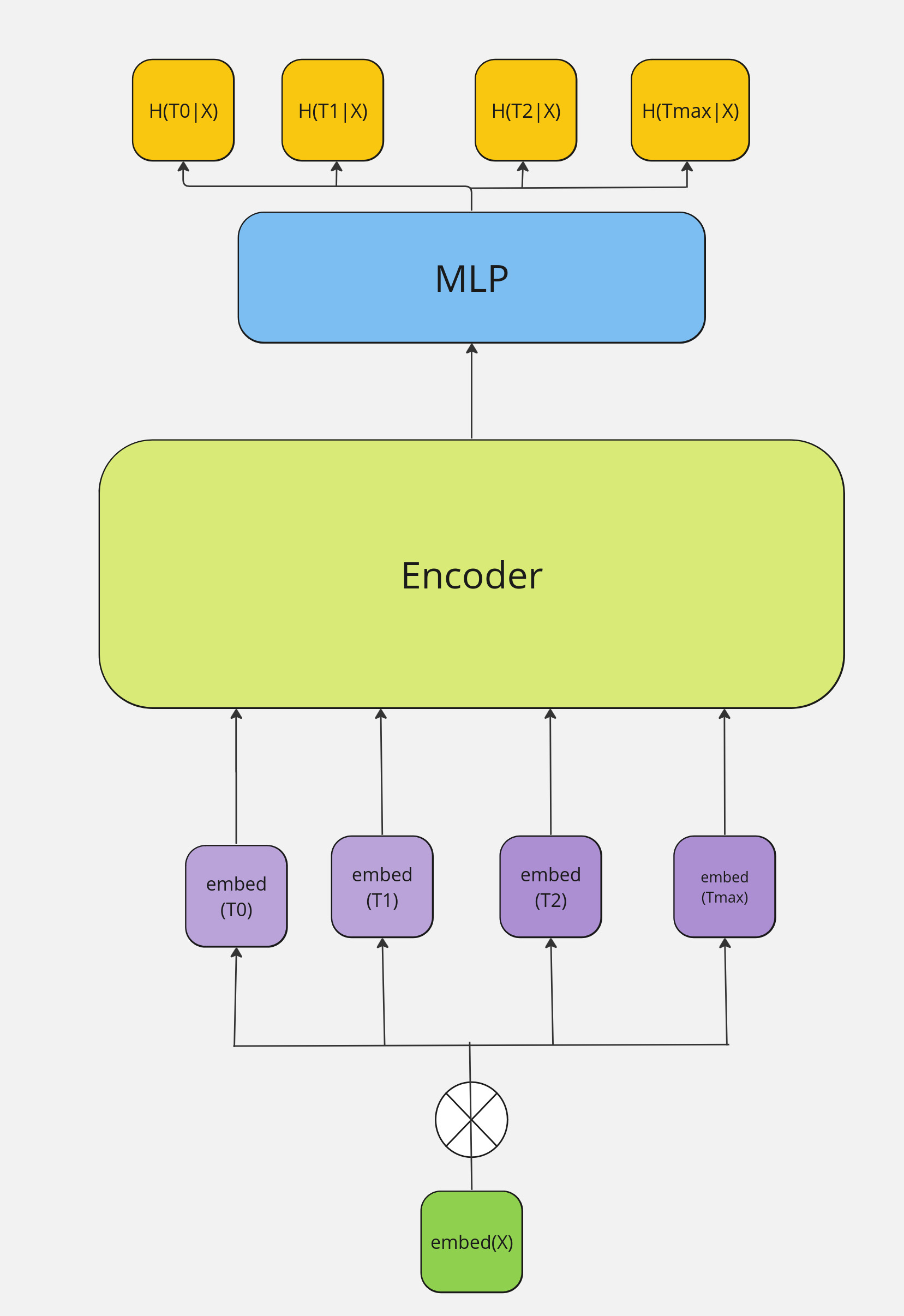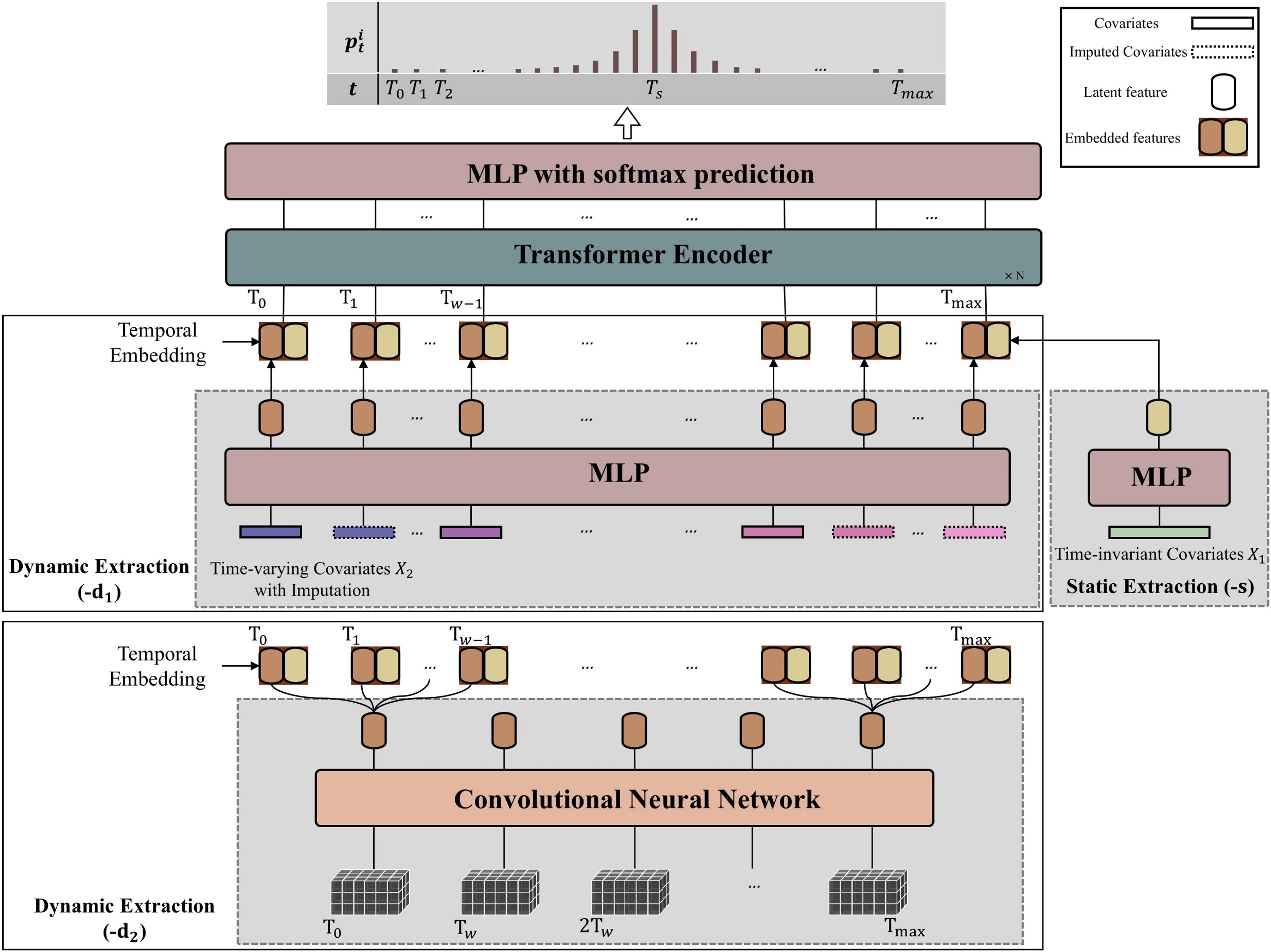Predicting Deterioration in Mild Cognitive Impairment with Survival Transformers, Extreme Gradient Boosting and Cox Proportional Hazard Modelling

0

Sign in to get full access
Overview
- Predicts cognitive decline in people with mild cognitive impairment (MCI) using machine learning models
- Compares performance of Survival Transformers, Extreme Gradient Boosting, and Cox Proportional Hazard models
- Uses metabolomic data as input features to predict time to conversion from MCI to Alzheimer's disease
Plain English Explanation
The research paper aims to predict the risk of cognitive decline in people with mild cognitive impairment (MCI) using advanced machine learning techniques. MCI is a condition where someone experiences a slight decline in cognitive abilities, but not severe enough to be classified as dementia. However, people with MCI are at a higher risk of developing Alzheimer's disease over time.
The researchers tested three different machine learning models to see which one could best predict the time it takes for someone with MCI to progress to Alzheimer's disease. These models were: Survival Transformers, Extreme Gradient Boosting, and Cox Proportional Hazard.
The key input data used by these models was metabolomic information, which looks at the chemical compounds present in a person's body. The researchers believed that changes in these metabolic markers could provide early warning signs of Alzheimer's disease before cognitive symptoms become apparent.
By comparing the performance of these different machine learning approaches, the researchers aimed to identify the most effective way to predict cognitive decline in people with mild cognitive impairment. This could help doctors intervene earlier and potentially slow down or prevent the progression to Alzheimer's disease.
Technical Explanation
The researchers used a dataset of individuals with MCI, some of whom progressed to Alzheimer's disease over the course of the study. They extracted metabolomic data from blood samples as input features for their machine learning models.
The Survival Transformers model is a deep learning approach that can directly predict time-to-event outcomes, like the time it takes for an MCI patient to develop Alzheimer's. This model learns a flexible representation of the underlying survival distribution.
Extreme Gradient Boosting (XGBoost) is a tree-based ensemble learning method that can also be used for survival analysis tasks. It iteratively builds a set of decision trees to optimize the prediction of time-to-event outcomes.
The Cox Proportional Hazard model is a statistical method commonly used in survival analysis. It models the relationship between covariates (like metabolomic features) and the hazard rate, which represents the instantaneous risk of an event (progression to Alzheimer's) occurring.
The researchers compared the performance of these three models on predicting time to Alzheimer's disease conversion using metrics like C-index and integrated Brier score. They found that the Survival Transformers model generally outperformed the other two approaches, suggesting that this deep learning technique may be well-suited for modeling the complex patterns in metabolomic data related to cognitive decline.
Critical Analysis
The paper provides a thorough comparison of several state-of-the-art machine learning models for predicting Alzheimer's disease progression in people with mild cognitive impairment. The use of metabolomic data as input features is a novel and promising approach, as changes in biochemical markers may precede the onset of cognitive symptoms.
However, the study does have some limitations. The sample size, while sizable, may not be large enough to fully capture the heterogeneity of the MCI population. Additionally, the researchers only looked at a single dataset, so the generalizability of the findings to other patient cohorts is unclear.
Further research is needed to validate these results and explore how the predictive models could be integrated into clinical practice to support early intervention and personalized care for individuals at risk of Alzheimer's disease. Incorporating additional data modalities, such as neuroimaging or genetic factors, may also improve the models' ability to predict cognitive decline.
Overall, this study represents an important step towards developing more accurate and interpretable machine learning tools for Alzheimer's risk prediction. By continuing to advance these techniques, researchers can work towards the goal of enabling earlier detection and more effective management of this devastating neurodegenerative condition.
Conclusion
This research paper explored the use of advanced machine learning models, including Survival Transformers, Extreme Gradient Boosting, and Cox Proportional Hazard, to predict the risk of cognitive decline in individuals with mild cognitive impairment (MCI). By leveraging metabolomic data as input features, the researchers aimed to identify early biomarkers of Alzheimer's disease progression.
The results suggest that the Survival Transformers model outperformed the other approaches, highlighting the potential of deep learning techniques for survival analysis tasks in the context of Alzheimer's disease research. This work contributes to the ongoing efforts to develop more accurate and personalized tools for predicting and managing cognitive decline, which could ultimately lead to improved outcomes for those at risk of developing Alzheimer's disease.
This summary was produced with help from an AI and may contain inaccuracies - check out the links to read the original source documents!
Related Papers


0
Predicting Deterioration in Mild Cognitive Impairment with Survival Transformers, Extreme Gradient Boosting and Cox Proportional Hazard Modelling
Henry Musto, Daniel Stamate, Doina Logofatu, Daniel Stahl
The paper proposes a novel approach of survival transformers and extreme gradient boosting models in predicting cognitive deterioration in individuals with mild cognitive impairment (MCI) using metabolomics data in the ADNI cohort. By leveraging advanced machine learning and transformer-based techniques applied in survival analysis, the proposed approach highlights the potential of these techniques for more accurate early detection and intervention in Alzheimer's dementia disease. This research also underscores the importance of non-invasive biomarkers and innovative modelling tools in enhancing the accuracy of dementia risk assessments, offering new avenues for clinical practice and patient care. A comprehensive Monte Carlo simulation procedure consisting of 100 repetitions of a nested cross-validation in which models were trained and evaluated, indicates that the survival machine learning models based on Transformer and XGBoost achieved the highest mean C-index performances, namely 0.85 and 0.8, respectively, and that they are superior to the conventional survival analysis Cox Proportional Hazards model which achieved a mean C-Index of 0.77. Moreover, based on the standard deviations of the C-Index performances obtained in the Monte Carlo simulation, we established that both survival machine learning models above are more stable than the conventional statistical model.
Read more9/25/2024
🤿

0
Comprehensive Multimodal Deep Learning Survival Prediction Enabled by a Transformer Architecture: A Multicenter Study in Glioblastoma
Ahmed Gomaa, Yixing Huang, Amr Hagag, Charlotte Schmitter, Daniel Hofler, Thomas Weissmann, Katharina Breininger, Manuel Schmidt, Jenny Stritzelberger, Daniel Delev, Roland Coras, Arnd Dorfler, Oliver Schnell, Benjamin Frey, Udo S. Gaipl, Sabine Semrau, Christoph Bert, Rainer Fietkau, Florian Putz
Background: This research aims to improve glioblastoma survival prediction by integrating MR images, clinical and molecular-pathologic data in a transformer-based deep learning model, addressing data heterogeneity and performance generalizability. Method: We propose and evaluate a transformer-based non-linear and non-proportional survival prediction model. The model employs self-supervised learning techniques to effectively encode the high-dimensional MRI input for integration with non-imaging data using cross-attention. To demonstrate model generalizability, the model is assessed with the time-dependent concordance index (Cdt) in two training setups using three independent public test sets: UPenn-GBM, UCSF-PDGM, and RHUH-GBM, each comprising 378, 366, and 36 cases, respectively. Results: The proposed transformer model achieved promising performance for imaging as well as non-imaging data, effectively integrating both modalities for enhanced performance (UPenn-GBM test-set, imaging Cdt 0.645, multimodal Cdt 0.707) while outperforming state-of-the-art late-fusion 3D-CNN-based models. Consistent performance was observed across the three independent multicenter test sets with Cdt values of 0.707 (UPenn-GBM, internal test set), 0.672 (UCSF-PDGM, first external test set) and 0.618 (RHUH-GBM, second external test set). The model achieved significant discrimination between patients with favorable and unfavorable survival for all three datasets (logrank p 1.9times{10}^{-8}, 9.7times{10}^{-3}, and 1.2times{10}^{-2}). Conclusions: The proposed transformer-based survival prediction model integrates complementary information from diverse input modalities, contributing to improved glioblastoma survival prediction compared to state-of-the-art methods. Consistent performance was observed across institutions supporting model generalizability.
Read more5/22/2024


0
A Large-Scale Neutral Comparison Study of Survival Models on Low-Dimensional Data
Lukas Burk, John Zobolas, Bernd Bischl, Andreas Bender, Marvin N. Wright, Raphael Sonabend
This work presents the first large-scale neutral benchmark experiment focused on single-event, right-censored, low-dimensional survival data. Benchmark experiments are essential in methodological research to scientifically compare new and existing model classes through proper empirical evaluation. Existing benchmarks in the survival literature are often narrow in scope, focusing, for example, on high-dimensional data. Additionally, they may lack appropriate tuning or evaluation procedures, or are qualitative reviews, rather than quantitative comparisons. This comprehensive study aims to fill the gap by neutrally evaluating a broad range of methods and providing generalizable conclusions. We benchmark 18 models, ranging from classical statistical approaches to many common machine learning methods, on 32 publicly available datasets. The benchmark tunes for both a discrimination measure and a proper scoring rule to assess performance in different settings. Evaluating on 8 survival metrics, we assess discrimination, calibration, and overall predictive performance of the tested models. Using discrimination measures, we find that no method significantly outperforms the Cox model. However, (tuned) Accelerated Failure Time models were able to achieve significantly better results with respect to overall predictive performance as measured by the right-censored log-likelihood. Machine learning methods that performed comparably well include Oblique Random Survival Forests under discrimination, and Cox-based likelihood-boosting under overall predictive performance. We conclude that for predictive purposes in the standard survival analysis setting of low-dimensional, right-censored data, the Cox Proportional Hazards model remains a simple and robust method, sufficient for practitioners.
Read more6/7/2024


0
Adaptive Transformer Modelling of Density Function for Nonparametric Survival Analysis
Xin Zhang, Deval Mehta, Yanan Hu, Chao Zhu, David Darby, Zhen Yu, Daniel Merlo, Melissa Gresle, Anneke Van Der Walt, Helmut Butzkueven, Zongyuan Ge
Survival analysis holds a crucial role across diverse disciplines, such as economics, engineering and healthcare. It empowers researchers to analyze both time-invariant and time-varying data, encompassing phenomena like customer churn, material degradation and various medical outcomes. Given the complexity and heterogeneity of such data, recent endeavors have demonstrated successful integration of deep learning methodologies to address limitations in conventional statistical approaches. However, current methods typically involve cluttered probability distribution function (PDF), have lower sensitivity in censoring prediction, only model static datasets, or only rely on recurrent neural networks for dynamic modelling. In this paper, we propose a novel survival regression method capable of producing high-quality unimodal PDFs without any prior distribution assumption, by optimizing novel Margin-Mean-Variance loss and leveraging the flexibility of Transformer to handle both temporal and non-temporal data, coined UniSurv. Extensive experiments on several datasets demonstrate that UniSurv places a significantly higher emphasis on censoring compared to other methods.
Read more9/11/2024